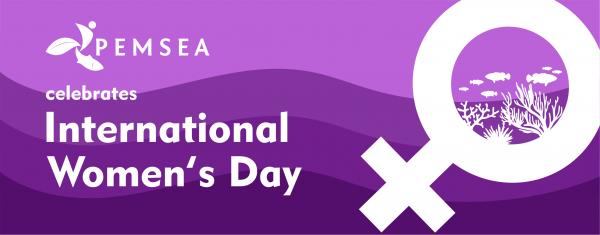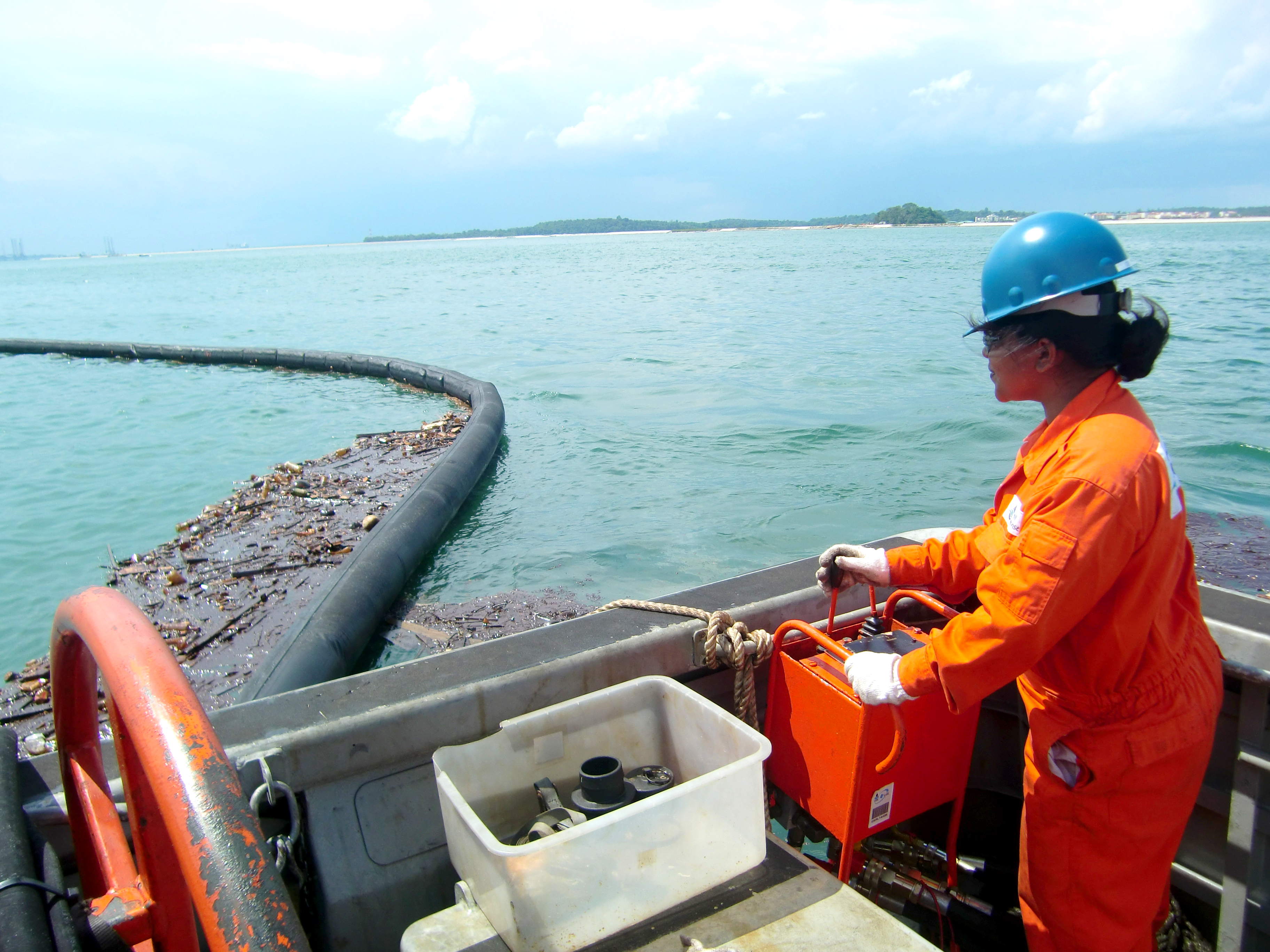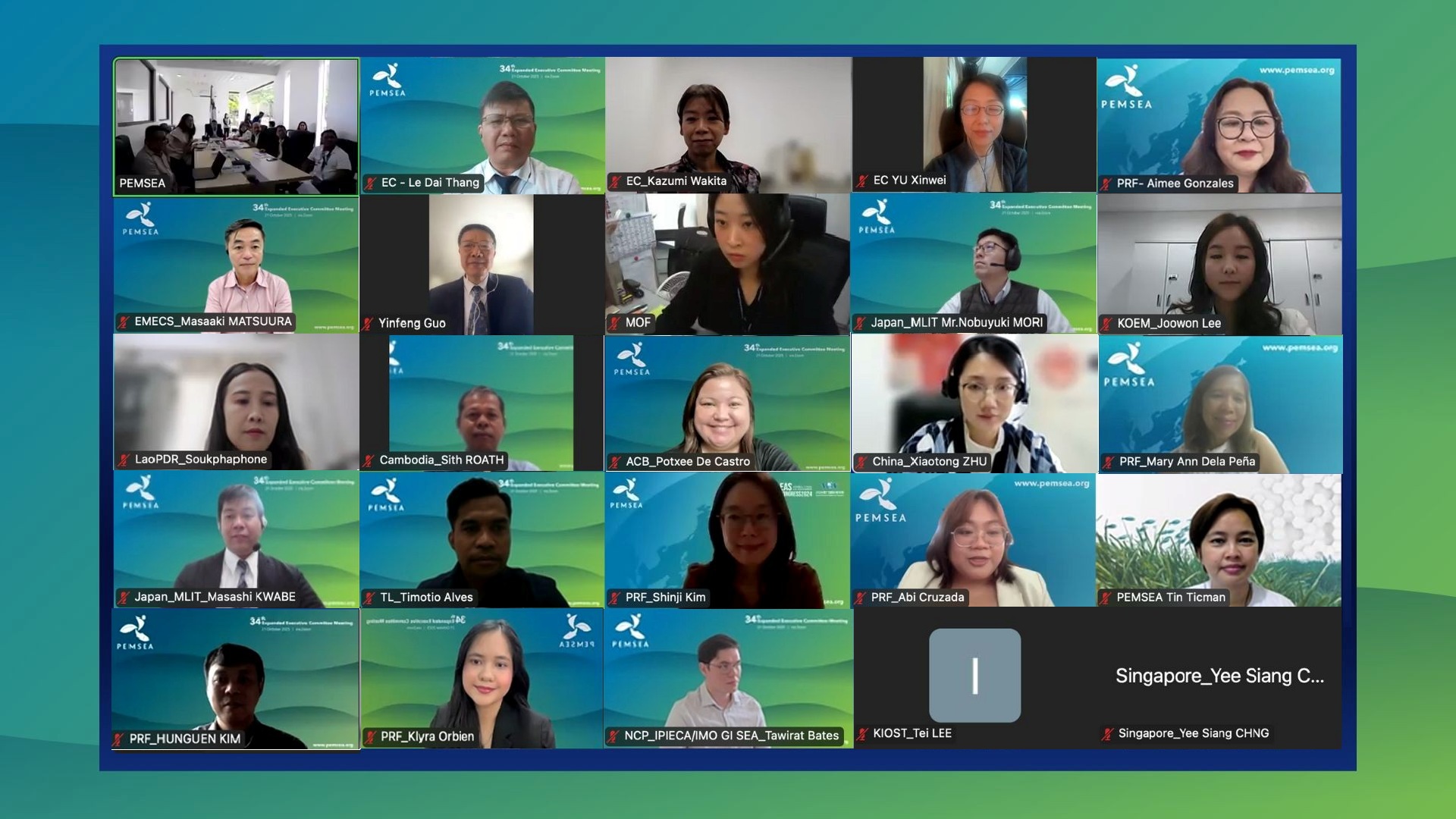PEMSEA lauds women’s role in marine and maritime sectors
Monday, 8 March 2021

March 8, 2021 - On the occasion of International Women’s Day, Partnerships in Environmental Management for the Seas of East Asia (PEMSEA) celebrates the extraordinary roles that women play in the marine and maritime sectors.
PEMSEA recognizes not only the paid and visible roles of women, but also their unpaid and less visible participation in onshore fisheries, aquaculture, processing and trading of marine products, managing plastic and other waste from urban and tourist growth, and in conservation and disaster-risk reduction initiatives in the coastal and maritime sector.

Below are a couple of examples on why we need to ensure the access of women and men to the same opportunities, rights, opportunities to choose, while respecting their specificities:
Women and men use and manage marine and coastal ecosystems differently.
Several studies show that in fishing communities, the household often functions as an economic unit where the roles of both men and women tend to be complementary: women control land-based activities, such as processing and marketing fish, while men engage in fish harvesting. At the same time, women have an indirect influence through household management in accounting for how many fish are supplied to the household. More importantly, women also have the main responsibility of educating young children about food collection, preparation and management. This extends to passing on their knowledge on resource use and traditional management. The diverse roles of women in the fishery sector, as well as their activities within the home, make them important contributors to both national and household food security. However, the recognition of women’s contributions in this area is not equal to that afforded to men.
Women are differently impacted by changes in their environment due to climate change, pollution, and globalization.
Across countries, the impacts of climate change, such as declining fish catch and ocean degradation, affect women and men differently. Women are often responsible for gathering and producing food, collecting water, and sourcing fuel for heating and cooking. With climate change, these tasks are becoming more difficult. Extreme weather events such as droughts and floods have a greater impact on the poor and most vulnerable, including women.
Despite women being disproportionately affected by climate change, they play a crucial role in climate change adaptation and mitigation. Women have the knowledge and understanding of what is needed to adapt to changing environmental conditions and to come up with practical solutions. But they are still a largely untapped resource.
Climate change mitigation requires a concerted, proactive and holistic response. Gender inequality may dramatically limit the resilience and adaptive capacity of women, families and communities. It may also restrict options for climate change mitigation and marine protection.

There is increasing global recognition of the role of women in coastal and maritime sector. UN SDG 14, “Conserve and sustainably use the oceans, seas and marine resources for sustainable development” and SDG 5: ‘to achieve gender equality and to empower all women and girls’. The sustainable and integrated marine and coastal ecosystem management requires gender sensitive and gender responsive planning, implementation, monitoring and evaluation at project, policy and grassroots level. If women and vulnerable groups are involved in marine development, both the marine environment and the women will benefit.
Below are some measures to implement UN SDG 14 and 5:
- Ensure women’s access to and participation in decision and policy making processes. Women’s roles should not be confined to gender equality issues as a separate category from coastal and marine management decisions and plans.
- Enhance capacity building among coastal communities to enable the knowledge of women to be recognized and supported as their work generates different kinds of expertise, solutions and benefits.
- Promote the development of gender disaggregated data as well as gender- responsive indicators in monitoring and evaluation to accurately report and measure progress to address gender inequalities, as well as reveal imbalances where they occur.
One of PEMSEA’s projects, the UNDP/GEF Arafura and Timor Seas Ecosystem Action Phase II (ATSEA-2) promotes gender equality in a significant and consistent way. Key activities undertaken by the project so far include the conduct of a gender analysis and assessment to feed into the project design and proposal development and a rapid Gender Equity and Social Inclusion (GESI) Training Needs Assessment.
It is envisioned that more equal opportunities and engagement from various sectors, and from both men and women as well as other marginalized groups, will be undertaken as ATSEA-2’s GESI initiatives and interventions, including the learning sessions are rolled out in 2021.

References:
Andrijevic, M. et al (2020) Overcoming gender inequality for climate resilient development.
Food and Agriculture Organization of the United Nations (2015). The role of women in the fishing industry
Food and Agriculture Organization of the United Nations (2015). A review of women’s access to fish in small-scale fisheries.
Friends of Ocean Action on SDG 5 Gender (2020)
T. Bohol. ATSEA 2 GESI Learning Sessions (2021)
United Nations Environment Programme and Gender and Water Alliance (2019). Gender Mainstreaming in the Management of the Marine and Coastal Ecosystems.
United Nations High Commissioner for Human Rights (2019). Summary of the panel discussion on women's rights and climate change: climate action, good practices and lessons learned
World Wide Fund for Nature (2019). Empowering women in marine communities to mitigate the impacts of climate change.




